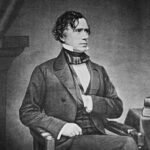President Franklin Pierce made one of America’s most controversial foreign policy decisions in 1856. His administration officially recognized William Walker’s illegal government in Nicaragua. This Pierce Walker Nicaragua recognition violated international law and sparked widespread condemnation.
The Filibustering Campaign
William Walker invaded Nicaragua in 1855 with a private army of American mercenaries. He exploited Nicaragua’s civil war to seize control of the government. Walker declared himself president without any legal authority. His forces consisted of adventurers seeking wealth and territory. 💰 The invasion represented pure American expansionism at its worst.
Pierce’s Recognition Decision
Pierce officially recognized Walker’s regime in May 1856. The decision came despite widespread criticism from Congress and the press. Critics called it blatant imperialism disguised as diplomacy. ⚠️ International observers condemned the recognition as illegal interference. Pierce ignored protests from other Central American nations.
Motivations Behind Support
Pierce supported Walker to advance American commercial interests in Central America. The administration wanted to secure transit routes across Nicaragua. 📊 Southern Democrats saw Walker’s pro-slavery policies as beneficial. Pierce hoped to distract from domestic sectional tensions over slavery.
Impact:
The Pierce Walker Nicaragua recognition created lasting diplomatic damage for the United States. International relations with Latin America deteriorated significantly. The decision undermined American credibility in foreign affairs. Critics accused Pierce of promoting illegal conquest and imperialism.
Immediate International Backlash
Central American nations formed a military coalition against Walker. Costa Rica, Honduras, Guatemala, and El Salvador united to expel the filibuster. 🔥 The coalition received support from Great Britain, which opposed American expansion. European powers criticized Pierce’s recognition as violation of sovereignty principles. Mexico threatened to break diplomatic relations with Washington.
Domestic Political Consequences
Congress condemned Pierce’s decision through formal resolutions. Northern Republicans attacked the policy as slavery expansion in disguise. The recognition damaged Pierce’s already weak presidency. 📉 Democratic Party unity fractured over the controversial decision. Pierce became a lame duck president months before the 1856 election.
Long-term Regional Effects
Walker’s regime collapsed in 1857 after sustained Central American resistance. The filibuster war destabilized Nicaragua for decades. 🌍 Latin American nations developed lasting distrust of U.S. intentions. The episode established a precedent for American intervention in Central America. Future presidents would reference Walker when justifying military interventions in the region.
